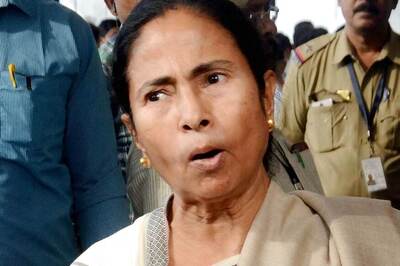
views
Mumbai: The rupee recovered slightly on Wednesday after suspected RBI intervention, a day after the currency had slumped to an all-time low, but global risk aversion meant the Indian unit would remain under pressure in the near term.
Foreign funds have been pulling out of shaky stocks over the past week and oil refiners who import about three-quarters of India's crude consumption have been heavy buyers of dollars in recent sessions.
However, the rupee remained above the 52 per dollar mark, trading at 51.70 per dollar from the day's low of 52.60 after state-run banks, who often act on behalf of the Reserve Bank of India (RBI), were spotted selling dollars.
"Lots of selling from state-run banks ... it has to be the RBI, no one else would sell like this," a senior dealer with a foreign bank said.
RBI Governor Duvvuri Subbarao, reached by reporters in Hyderabad, declined to comment.
Sudarshana Bhat, head of foreign exchange trading at state-run Corporation Bank, said market talk that a separate window would be opened by the RBI for oil refiners to buy dollars directly also led to unwinding of long dollar positions by large companies.
By 11:30 am (0600 GMT), the rupee pared the rise and was trading at 52.02/03, 0.5 per cent stronger than 52.2950/3050 at close on Tuesday when it had hit a record low of 52.73 during trade.
"Today's recovery only seems like a temporary relief for the rupee," Bhat said. "Everyone from the finance ministry, government officials as also central bank officials are talking about the rupee off late, but we need to see what steps these regulators actually take."
Risks abound
The Reserve Bank has always maintained that it does not protect any particular level on the rupee and would only intervene to iron out excessive volatility.
Subbarao had said on Tuesday the RBI was watching the situation and would ensure the exchange rate does not impair economic stability.
Finance Minister Pranab Mukherjee on Tuesday blamed the fall in the rupee on the international market and said that central bank intervention would have a limited effect.
Sensex was trading down more than 1.5 per cent on gloomy global economic outlook adding to slowing domestic growth.
Foreign funds have sold more than $450 million worth of shares over five trading sessions till Monday, reducing the net inflows in 2011 to under $300 million, sharply below record investments of more than $29 billion seen in 2010.
Exposure to short-term portfolio flows, a rising oil import bill and worsening government finances have heightened the risk for the rupee, Asia's worst-performing currency this year.
The rupee has lost 14 per cent of its value in 2011 to be the worst performing currency in Asia with the closest second being the Thai baht, which has lost only 3.5 per cent.
"I think the rupee may stabilise around current levels. It may head back towards 52.5 in the near term but if we see a bounce back again from those levels, then 51.50-52.50 could be the near-term range," Corporation Bank's Bhat said.




















Comments
0 comment